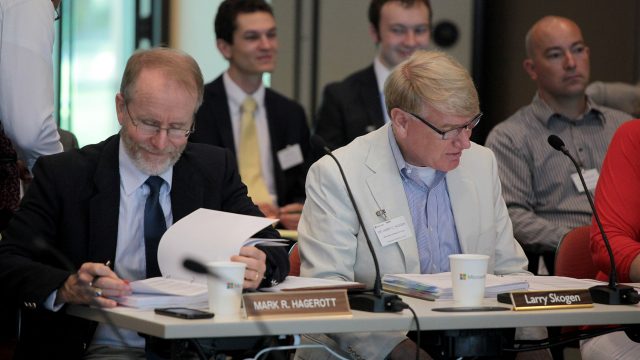Higher Ed Officials Need To Stop Using Open Records Laws As An Excuse

Open records laws confound the higher education bureaucrats again.
As anyone who has ever run an enterprise of any size knows, performance evaluations are an important tool for keeping employees on-track and accountable. The problem is that one of our state’s largest branches, the North Dakota University System, some of the highest-paid officials with the most responsibility aren’t getting thorough evaluations.
The excuse? North Dakota’s broad open records laws would make those evaluations, and the process leading up to them, open to the public. That doesn’t sit well with some of the ponderous egos running our universities. So what the university system has been doing for the university presidents is having the chancellor write largely superficial reviews of performance, while refusing to do more in-depth reviews.
There was even an attempt during the legislative session earlier this year to close off the evaluations of university presidents to public scrutiny, though it was ultimately unsuccessful.
I was hoping that new leadership in the university system from new State Board of Higher Education President Kathy Neset and new Chancellor Mark Hagerott would cut through some of this resistance to evaluating the presidents. Unfortunately, it seems from the most recent meeting of the board that the university system is intent on using open records laws as an excuse.
The Higher Learning Commission, which provides accreditation for North Dakota’s universities, has highlighted the lack of evaluations as a problem, but board members claim they can’t do the evaluations if they’re open to the public:
Board members said conducting thorough “360” evaluations for university presidents is difficult due to the state’s open records laws, and the current plan is to present individual presidential goals to the full board for adoption in December, which the presidents will be measured against the coming summer.
“We’re kind of stuck in limbo,” SBHE member Nick Hacker said in regard to the “360” reviews, which he thought were a move in the right direction.
The North Dakota University System has been plagued by poor leadership from its presidents. A former president at Dickinson State University presided over a massive diploma mill scandal which saw the institution issuing hundreds of phony degrees based on trumped up transcripts. At the University of North Dakota President Robert Kelley is departing early from his contract leaving behind him a mess of problems including alienated alumni, angry students, and low morale among the university’s faculty and staff. At Minot State former President David Fuller’s antagonistic relationship with lawmakers exacerbated what was already a poor and mistrustful relationship between lawmakers and the university system, and North Dakota State University President Dean Bresciani is keeping Fuller’s tradition alive and well.
All of which is to say that these evaluations are badly needed.
It is amazing to me that highly paid public servants would object to their evaluations being done publicly. Transparency is something which comes with the job when you work for the government. Presidents who don’t like it ought to think about finding jobs in the private sector.
The State Board of Higher Education, meanwhile, needs to find the gumption to stand up to the egos in the university system and do the reviews.




